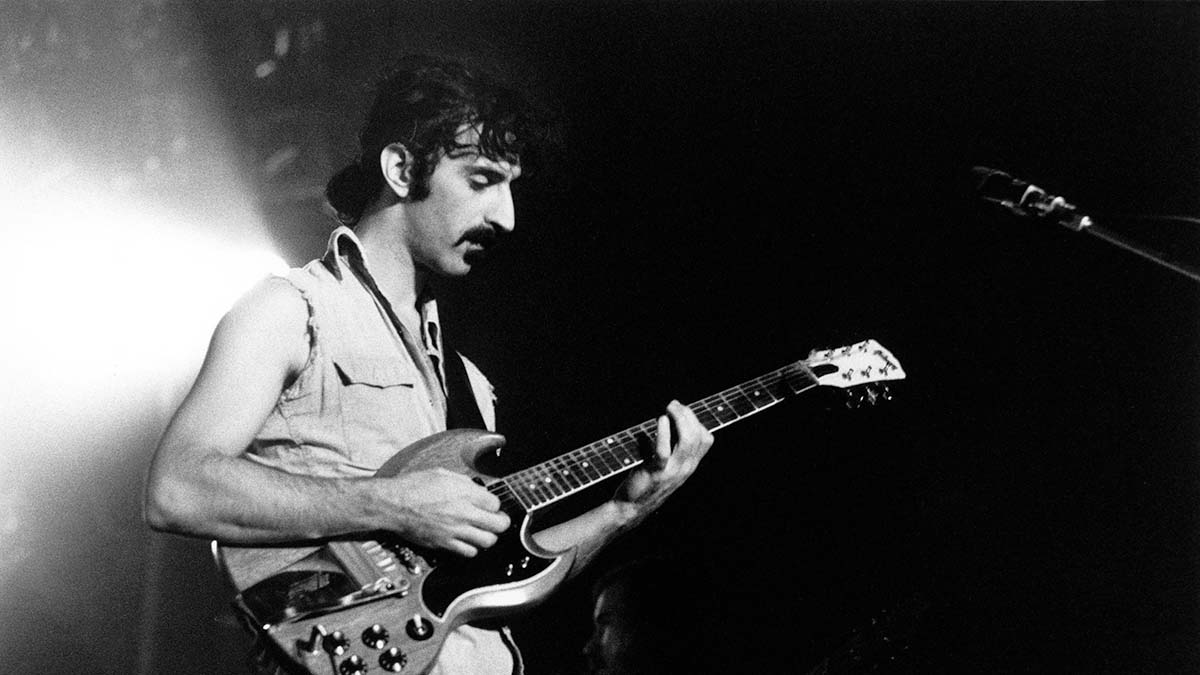Alex Winter takes us behind the scenes of his extensive Frank Zappa documentary, Zappa
Wading through Zappa's exhaustive audio/video archive, Winter puts together a portrait of a visionary guitarist and artist at work

The director of exhaustive Frank Zappa documentary, Zappa, Alex Winter, is probably better known to the world as Bill S Preston, Esq from the Bill & Ted movies.
Zappa was a labour of love that took years to complete, and two key elements to its existence were a successful fundraising campaign and, more crucially, unlimited access to Zappa’s infamous vault – an enormous autobiographical archive of film, video and audio.
Here, the lifelong Zappa fan takes us through the making of the revealing portrait.
How did you begin your work with the archives?
“Access to the vault began a two-year process of doing excavation and preservation work on the media that was down there before we even got around to being able to make the film. It was a mammoth undertaking. Thankfully, it’s media that we were really happy to be looking at. Every day we were looking at stuff, which was kind of a joy.”
The audio is very delicate. It’ll get eaten away at by time. The family had it in a temperature-controlled space, but it’s very hard for that stuff to survive no matter what
A lot of the material had deteriorated over the years. How did you go about restoring it?
“Zappa was such a formidable archivist and he was working in every format. So we had 8mm, Super 8, 16mm, 35mm and every conceivable format of video and audio. It was deteriorated, but we had over a dozen separate companies scattered across the place doing this work for us. It took a great deal of time, but, again, it was gratifying that the media was really beautiful, so we were happy to do it.
All the latest guitar news, interviews, lessons, reviews, deals and more, direct to your inbox!
“It was just not easy. The audio is very delicate. It’ll get eaten away at by time. The family had it in a temperature-controlled space, but it’s very hard for that stuff to survive no matter what. So we were able to save all of the endangered media that was down there. Some of it was already gone, but very little of it.”
It must have been a mammoth task deciding what material to select from such a large resource. How did you go about that?
“I had an idea in mind from the beginning in terms of the story I was most interested in, and not trying to please every fan and hit every biographical beat of his life. I was really interested in a narrative of what it meant to make art in that period of time and the politics of the time and the culture of the time.
“I think what helped direct Mike [J Nichols, film editor] and I specifically was that quite early on in the preservation work we discovered hours and hours of Frank talking, whether it was on film, video or audio. And we pulled all of that. The lion’s share of that had never been heard before and we strung together a narrative of essentially Frank taking us through his life. And then we chose what to use and what not to use.”
We discovered hours and hours of Frank talking. The lion’s share of that had never been heard before and we strung together a narrative of essentially Frank taking us through his life
Was there anything missing from the archive that you wished you’d been able to include in the film?
“I was eager to include the Garrick Theater period, which is one of the most inspiring periods of Zappa’s career, in my opinion, because it was really such a unique way of forming an artistic identity to just walk into a theatre and perform there all day, every day for months on end. And I think he really came out from that experience having formed his artistic identity. There was always stuff we wanted that we couldn’t find. But I mean, time ravages all things, you know?”
- Zappa is available to watch on Altitude.film and other major digital platforms.
